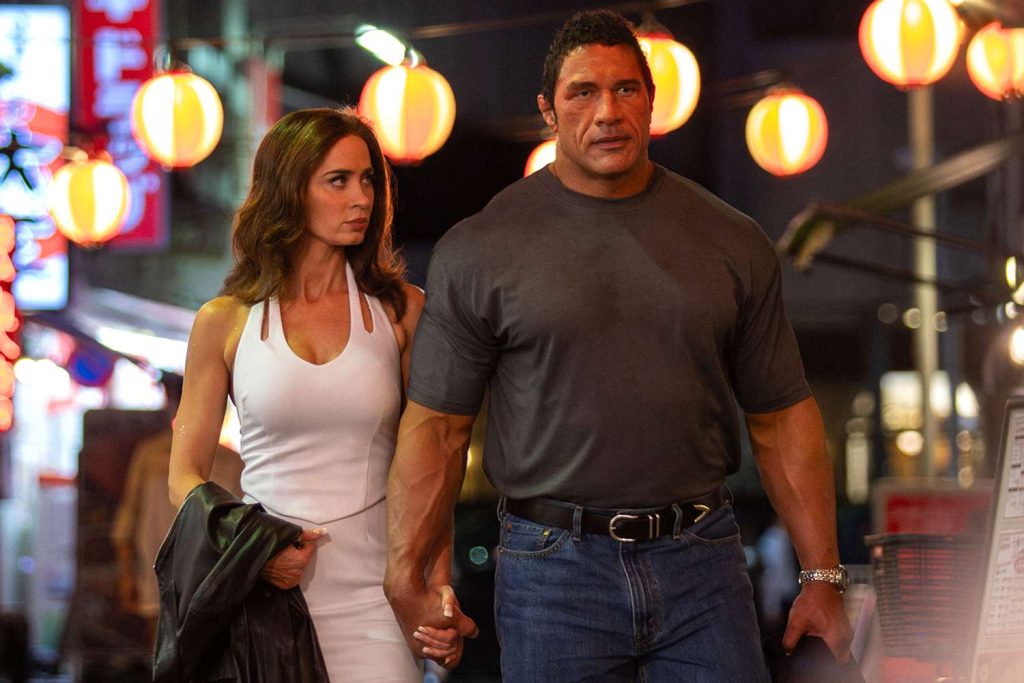A title card at the beginning of writer-director Wes Miller’s Western Hell on the Border laments the erasure of the black cowboy from popular depictions of the Old West, but this poorly written, threadbare production is not exactly the best way to bring forgotten historical figures back to prominence. Miller shines a spotlight on Bass Reeves (Carnival Row’s David Gyasi), the first black man to be appointed a deputy U.S. marshal west of the Mississippi River, crafting a familiar Western story around Reeves’ initial recruitment. But despite the depiction of real people (including a gratuitous single-scene appearance from Jesse James and his gang), Hell on the Border feels entirely phony, like a bunch of community theater actors fumbling their way around a Western-themed tourist attraction.
Gyasi is a reliable presence on TV and in supporting film roles, but he plays Reeves as so stoic and laconic that he barely makes an impression in his own movie. He’s consistently upstaged by the movie’s two big-name ringers, Ron Perlman as salty outlaw Charlie Storm, who becomes Reeves’ reluctant partner, and Frank Grillo as ruthless criminal Bob Dozier, whom Reeves is tasked with apprehending in order to prove his worth as a potential deputy marshal. It takes a good 40 minutes to even set that plot in motion, though, and the film’s first act is especially tedious, with lots of stiff acting from Manu Intiraymi as Judge Isaac Parker (another real-life figure), who is Reeves’ biggest supporter.
Parker decides to appoint Reeves deputy marshal after Reeves saves him from a group of gunmen, killing at least one white man in the process. Since it’s illegal for Reeves to kill a white person, even in self-defense, designating him a government official is the only way to save him from being hanged. That takes some of the agency out of Reeves’ actual accomplishments, and the slow-moving plot goes through all the motions of Parker deputizing Reeves only for him to take it away under pressure from a visiting Senator. It’s only after that lengthy process, with lots of awkwardly delivered proclamations, that Reeves teams up with Stone and sets out on his central mission.
Perlman gives the only lively performance in the movie, leaning into his character of the cantankerous old gunslinger who reluctantly comes to respect a taciturn lawman. He and Gyasi have decent chemistry largely because Perlman barrels over his co-star, and Gyasi properly underplays Reeves’ reactions. Grillo, who’s become a critical favorite in unfussy action B-movies, is mostly on autopilot as the sneering villain, who is introduced giving a speech about the injustices the U.S. government has visited upon Native Americans, but turns out to be your average murderous gang leader. There are a few references to how “progressive” the Arkansas territory is in 1875 (at least compared to other places in the West), but Miller never comes up with any coherent social commentary, and eventually loses the message in favor of indifferently staged gunfights.
The production values of Hell on the Border are shockingly poor for a movie featuring successful professional actors, and the cinematography is so atrocious, full of ugly, overlit, washed-out compositions, that it feels a bit like post-production was never finished. The cloying, overbearing score is constantly blaring, sometimes drowning out the actors. Most of the supporting performances are terrible, from Jacqueline Fleming’s overwrought wailing as Reeves’ worried wife to Marshall R. Teague’s stumbling over old-timey legal terminology. Just because a movie has words like “forthwith” in its dialogue doesn’t make it historically accurate.
Optimistically subtitled The Chronicles of Bass Reeves Vol. 1, Hell on the Border aims for a bold, exciting take on Westerns, restoring an unsung hero to his rightful place in history. Instead it reduces Reeves to a cheap action-movie stereotype, just another generic Western lawman gunning down anonymous henchmen in cowboy hats. It seems highly unlikely that he’ll make it to Vol. 2. ![]()
C-



